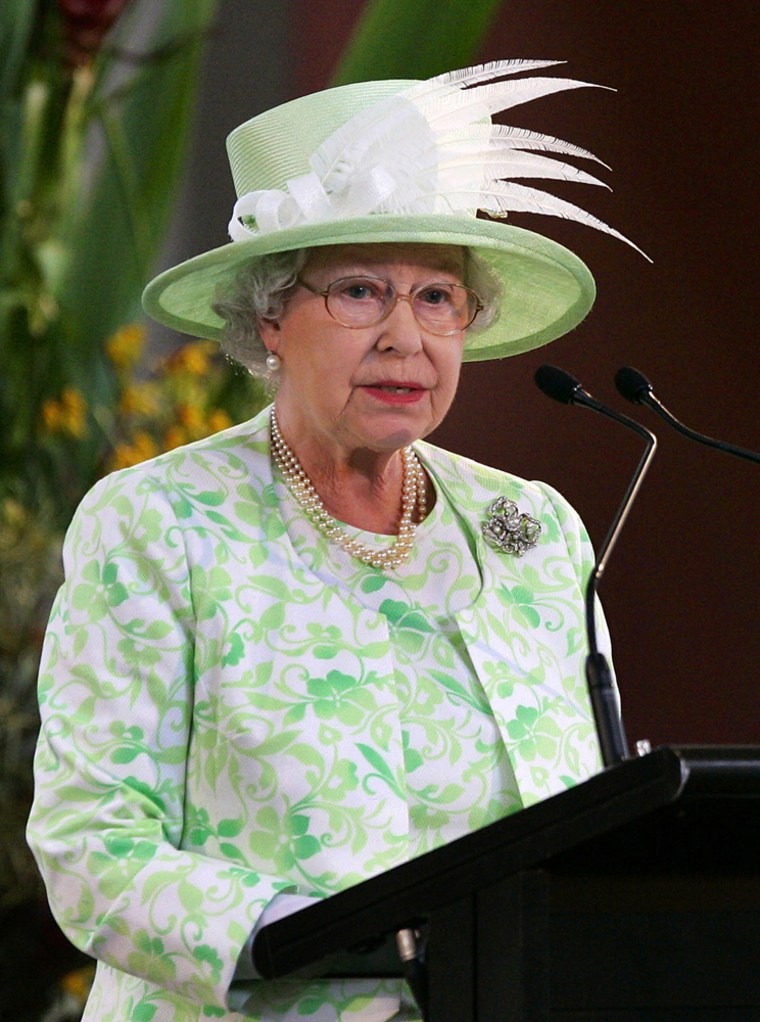LONDON — Queen Elizabeth II sounds more like her subjects than she did a half century ago, when she first assumed her royal "dutays," according to an academic study released Monday.
"In 1952 she would have been heard referring to `thet men in the bleck het.' Now it would be `that man in the black hat,'" said Jonathan Harrington, professor of phonetics at the University of Munich, who conducted the study.
"Similarly, she would have spoken of the 'citay' and 'dutay,' rather than 'citee' and 'dutee,' and 'hame' rather than 'home.' In the 1950s she would have been 'lorst,' but by the 1970s this became 'lost.'"
"Queen's English" is a well-known phrase commonly used to describe posh or "Received Pronounciation." The queen used to be said to speak Upper Received Pronunciation, but has now slipped toward Standard Received Pronunciation, the report said.
Harrington said the queen is unique in having a good quality archive of recordings for every year since 1952, in similar formal settings.
"It means that we can monitor sound changes without having to worry about the influence of speaking styles," he said.
The changes in her speech, he said, probably were not a conscious attempt to come closer to her subjects.
"One of the principal changes that has happened in the English community is that the accent now sounds slightly less aristocratic than it did 50 years ago.
"This is to do with the fact that 50 years ago there was a much more demarcated class structure.
"Of course, in the 1960s and the 1970s there was something of a collapse in the rigidity of that class structure and this was also reflected in the change of accent."
